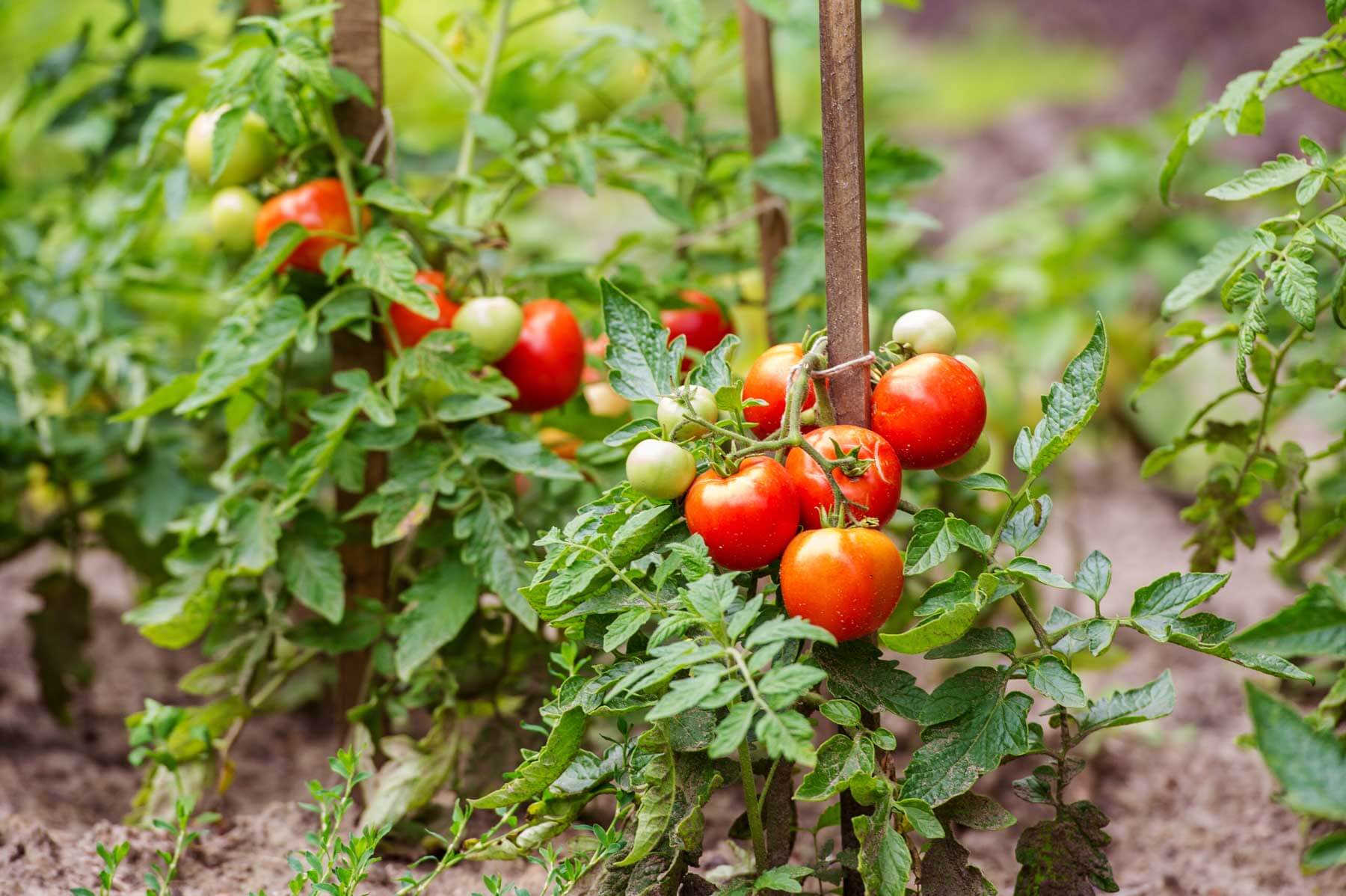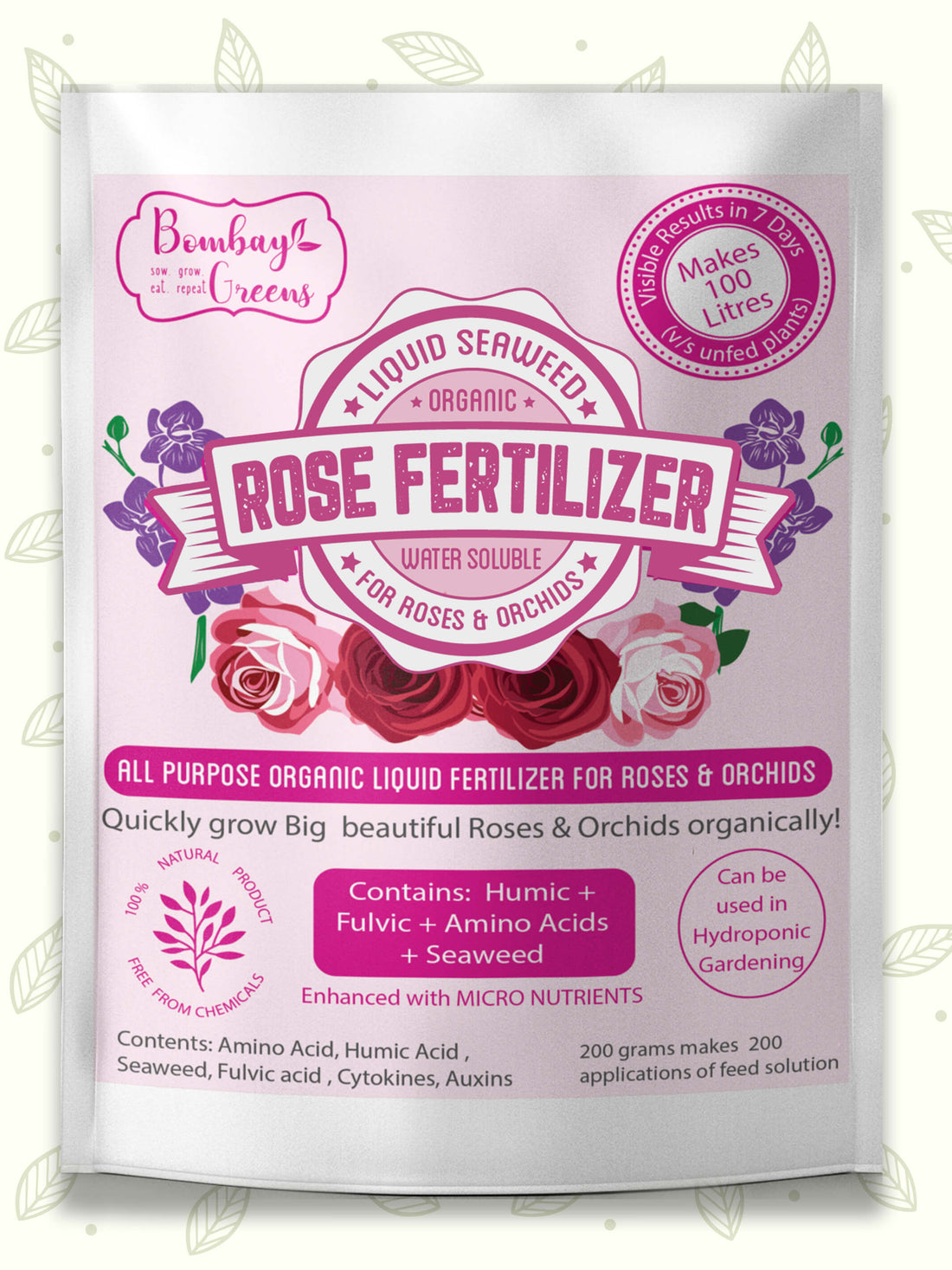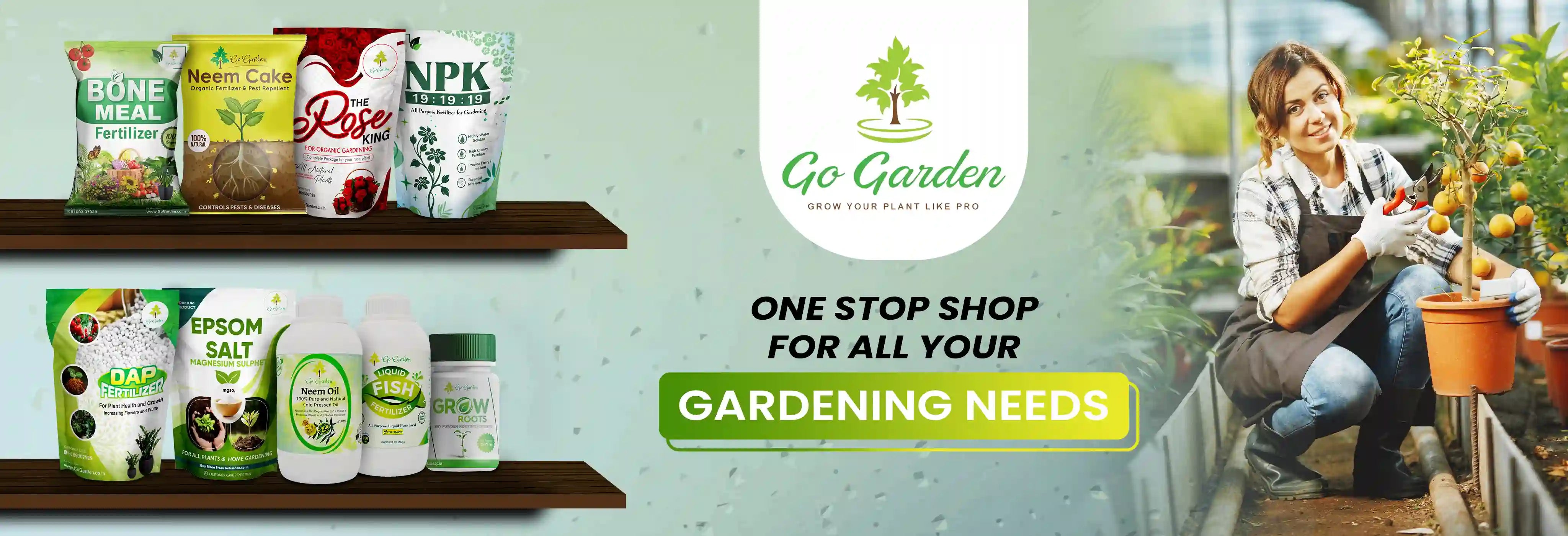Welcome to the world of gardening, where the right nutrients can make all the difference. Understanding how to choose the best fertilizers for your plants is essential for achieving a lush and vibrant garden. With so many options available, it can feel overwhelming.
In this guide, we will explore the best fertilizers for every plant by covering 50+ frequently asked user questions. Whether you're nurturing vegetables, flowering plants, or indoor greenery, knowing what your plants need is key to their success.
From organic solutions to synthetic options, each type of fertilizer serves a unique purpose. We'll help you navigate through these choices and discover how to apply them effectively for optimal growth.
Get ready to unlock the secrets of successful gardening with our insights on finding best fertilizers avalable for your vegetables, flowers or fruits. Your plants deserve the best care possible.
Table of Contents
ToggleWhat is the Best Fertilizer for Tomatoes?

Nutritional Needs of Tomatoes
Tomatoes require a balanced supply of nitrogen (N), phosphorus (P), and potassium (K) throughout their growth stages:
- Nitrogen: Promotes leaf and stem growth. However, excessive nitrogen can lead to lush foliage at the expense of fruit production.
- Phosphorus: Essential for root development and flowering. A higher phosphorus content is beneficial during the early stages and when flowering.
- Potassium: Important for overall plant health, fruit quality, and disease resistance. It is particularly crucial during fruit development.
Get the best fertilizers for tomato plants on Amazon
Recommended Fertilizer Ratios
- For Planting: Use a starter fertilizer with a high phosphorus content, such as a ratio of 5-10-5 or 10-20-20. This supports root establishment and early growth.
- During Growth:
- Early Growth: A balanced fertilizer like 10-10-10 can be used if soil tests indicate a deficiency in nitrogen.
- Flowering Stage: Switch to a fertilizer with higher potassium, such as 8-32-16 or 6-24-24, to support flowering and fruit set.
- Fruiting Stage: Use a fertilizer with lower nitrogen and higher potassium, such as 4-6-3, to enhance fruit quality.
Types of Fertilizers
Organic Fertilizers
Organic options are often preferred for their long-term benefits to soil health:
- Compost: Enhances soil structure and provides nutrients gradually.
- Bone Meal: High in phosphorus; ideal for planting holes.
- Fish Emulsion: A liquid option that provides nutrients quickly.
Synthetic Fertilizers
These are effective for quick nutrient delivery:
- Water-soluble fertilizers can be mixed with water for easy application every few weeks during the growing season.
Application Methods
- At Planting:
- Mix the recommended fertilizer into the soil at the bottom of the planting hole to prevent root burn.
- Cover with a layer of soil before placing the plant in the hole.
- Side-Dressing:
- Apply additional fertilizer every 3 to 4 weeks during the growing season. Make a shallow furrow around the plant, sprinkle in the fertilizer, cover it with soil, and water well.
- Water-Soluble Fertilizers:
- For container-grown tomatoes, mix about 1 tablespoon per gallon of water and apply every one to two weeks.
Selecting the best fertilizer for tomatoes requires understanding their nutrient needs at various growth stages.
A mix of organic amendments like compost and targeted fertilizers with suitable NPK ratios promotes healthy plants and abundant fruit. Regular soil health monitoring and adjusting fertilization practices will yield optimal results.
What is the best organic fertilizer for roses?

Get the best fertilizers for rose plants on Amazon
Choosing the right organic fertilizer for roses is essential for promoting healthy growth and vibrant blooms. Organic fertilizers provide nutrients derived from natural sources, enhancing soil quality and supporting beneficial microorganisms.
Benefits of Organic Fertilizers
Organic fertilizers offer several advantages for rose cultivation:
- Improved Soil Health: They enhance soil structure and fertility.
- Nutrient-Rich: Provide essential macro and micronutrients.
- Environmentally Friendly: Reduce chemical runoff and promote sustainability.
Popular Organic Fertilizers for Roses in India
Here are some effective organic fertilizers available in India that can help your roses thrive:
- Bombay Greens Liquid Organic Fertilizer: A blend of amino acids, humic acid, and seaweed extracts that boosts flowering and root development.
- Plantic RoseDrop Organic Liquid Fertilizer: This bio-fertilizer improves soil texture and plant health, promoting vigorous growth and disease resistance.
- Casa De Amor Rose Care Organic Essential Plant Food: A balanced blend that supports overall plant health and enhances bloom production.
Homemade Organic Fertilizers
You can also create effective fertilizers using kitchen scraps:
- Banana Peels: Rich in potassium, they promote strong stems and vibrant blooms.
- Epsom Salts: Enhance magnesium levels, improving foliage color and bloom quality.
- Used Tea Bags: Add acidity to the soil, beneficial for rose plants.
Application Tips
To maximize the benefits of organic fertilizers, consider these application tips:
- Frequency: Apply every 4-6 weeks during the growing season.
- Watering: Ensure plants are well-watered before and after fertilizing to prevent root burn.
- Soil Testing: Test soil pH to tailor fertilizer choices effectively.
Selecting the best organic fertilizer tailored to your roses' needs will ensure a thriving garden filled with beautiful blooms.
What kind of fertilizer do I need for my lawn?

Get the best fertilizers for lawn grass and care on Amazon
Choosing the right fertilizer for your lawn is essential for achieving a lush, green landscape. Understanding the types of fertilizers available and their benefits can help you make an informed decision.
Types of Lawn Fertilizers
There are two main types of lawn fertilizers: quick-release and controlled-release.
- Quick-Release Fertilizers: These provide immediate nutrients, promoting rapid growth.
- Controlled-Release Fertilizers: These release nutrients gradually, ensuring long-term nourishment.
Key Nutrients
The primary nutrients to look for in lawn fertilizers include nitrogen (N), phosphorus (P), and potassium (K), often referred to as N-P-K.
- Nitrogen: Encourages lush, green growth.
- Phosphorus: Supports root development.
- Potassium: Enhances disease resistance and overall health.
Popular Fertilizer Products in India
Here are some well-regarded lawn fertilizers available in India that can help nourish your grass effectively:
- Casa De Amor Organic Lawn Booster: A natural liquid spray containing fulvic and humic acids, suitable for all grass types.
- Scotts Liquid Turf Builder: A dual-action fertilizer that feeds and waters simultaneously, ideal for busy homeowners.
- Black Magic Lawn Fertilizer: A powder form of NPK nutrients designed for various grass types, effective for lush lawns.
Application Tips
For best results, follow these application tips:
- Apply during active growth periods for your grass type.
- Avoid over-fertilizing to prevent burning your lawn.
- Water thoroughly after application to help nutrients absorb into the soil.
Selecting the right fertilizer tailored to your lawn's needs will promote healthy growth and a vibrant appearance. Regular care and proper application techniques are key to maintaining a beautiful lawn.
What is the best fertilizer for indoor plants?

Get the best fertilizers for indoor plants on Amazon
Choosing the right fertilizer for indoor plants is essential for their growth and vitality. Different plants have varying nutrient needs, and understanding these can help you select the best product.
Key Nutrients for Indoor Plants
Indoor plants require specific nutrients to thrive, primarily nitrogen, phosphorus, and potassium (NPK). These elements support leaf growth, root development, and flowering.
Types of Fertilizers
- Liquid Fertilizers: Easy to apply and quickly absorbed by plants.
- Granular Fertilizers: Slow-release options that provide nutrients over time.
- Organic Fertilizers: Made from natural materials, promoting healthy soil and plant growth.
Popular Fertilizer Products in India
- OrganicDews Liquid Seaweed: Organic and odorless, suitable for various houseplants.
- Bloombuddy Growth Booster Fertilizer: A liquid formula that promotes rapid growth and disease resistance.
- Miracle-Gro Performance Organics: An all-purpose option ideal for indoor plants.
Application Tips
For best results, fertilize during the growing season (March to September) and follow the dosage instructions on the product label. Over-fertilization can harm your plants, so moderation is key.
Selecting the right fertilizer tailored to your indoor plants' needs will ensure they flourish. Regular feeding with appropriate products can lead to lush foliage and vibrant blooms.
Related Products
- 3 Best Fertilizer For Flowering Plants
- 3 Best Organic Fertilizer For Vegetable Gardens In India
- 3 Best Fertilizers For Indoor Plants in India
- 3 Best Fertilizers For Plants And Flowers In India
- 3 Best Fertilizer For Fruit Trees
- 3 Best Slow Release Fertilizer For Plants In India
- 3 Best Liquid Fertilizer For Indoor Plants In India
- 3 Best Fertilizers For Tomato Plants In India
- 3 Best Fertilizer For Tulsi Plant Growth
- 3 Best Humic Acid Fertilizer For Plants
- 3 Best Fertilizers For Rose Plants & Bushes In India
- 3 Best Fertilizer For Orchids To Bloom & Flowering
- 3 Best Fertilizer For Hibiscus Plant
- 3 Best All Purpose Plant Fertilizer In India
- 3 Best Organic Fertilizer For Plants At Home
- 3 Best Bone Meal Fertilizer For Plants
- 3 Best Fertilizers For Mango Tree In India
- 3 Best Fertilizer For Lemon Plants & Trees
- 3 Best Fertilizer For Chilli Plants
- 3 Best Indoor House Plant Fertilizers in India
- 3 Best Nitrogen Rich Fertilizer For Plants
- 3 Best Phosphorus Rich Fertilizer For Plants
- 3 Best Potassium Rich Fertilizer For Plants
- 3 Best Micronutrient Fertilizer For Plants
- 3 Best Fertilizer For Lawn Grass And Care
- 3 Best Vermicompost For Plants In India
- 3 Best Potting Soil And Potting Mix For Plants
- 3 Best Cocopeat For Garden Potted Plants
- 3 Best Organic Neem Cake Powder For Plants | Neem Khali
- 3 Best Fish Meal Fertilizer For Plants
- bone meal fertilizer
- bone meal
- bone meal for plants
- bone meal on plants
- bone powder fertilizer
- bone powder for plants
- bone meal powder for plants
- steamed bone meal
- applying bone meal
- bloodmeal fertilizer
- bone dust fertilizer
- bone dust for plants
- bone meal fertilizer 50 kg price
- bone meal fertilizer composition
- bone meal fertilizer price
- bone meal fertilizer uses
- bone meal powder for plants uses
- bone meal price
- bone meal price 50 kg
- bone meal price per kg
- bone meal use
- bone meal uses
- bone plants
- bonemeal uses

